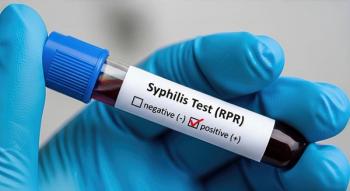
GSK investigational hepatitis therapy will begin phase 3 trials
The therapy, bepirovirsen, is an antisense oligonucleotide that targets all Hepatitis B (HBV) messenger RNAs, and the company is hoping it will become a functional cure.
Back in November, GSK
The study was published in the
The investigators saw the value in the therapy, despite the drop in efficacy. “Although this is a relatively low percentage of participants overall, it indicates the possibility of enhanced efficacy with the selection of patients according to baseline characteristics (low HBsAg level at baseline), with combination therapies, or both,” indicated Man-Fung Yuen, MD, PhD, DSc, Department of Medicine, Queen Mary Hospital, School of Clinical Medicine, Li-Ka Shing Faculty of Medicine, and the State Key Laboratory of Liver Research, University of Honk Kong, Hong Kong, and colleagues.
And GSK has remained committed to the therapy and trials. At that time, the company said it believed bepirovirsen could still benefit patients with low baseline hepatitis B surface antigen levels.
“Today’s results from the B-Clear study are a promising step forward for the approximately 300 million people living with chronic hepatitis B,” Chris Corsico, senior vice president of Development at GSK said at that time.
Last month, GSK announced it was officially moving forward with phase 3 clinical trials. They plan to conduct 2 trials, B-Well 1 and B-Well 2, and these both will be multi-center, randomized, double-blind, placebo-controlled study to confirm the efficacy and safety of bepirovirsen in participants with chronic hepatitis B virus against a placebo in patients who will also be treated with nucleos(t)ides.
Recruiting has begun and they predict to have primary completion in the fourth quarter of 2025.
At the J.P. Morgan Healthcare Conference held in San Francisco earlier this year, GSK said bepirovirsen had the “potential to be first in-class functional cure for chronic HBV.”
This article was initially published by our sister publication Contagion Live.
Newsletter
Get the latest clinical updates, case studies, and expert commentary in obstetric and gynecologic care. Sign up now to stay informed.









